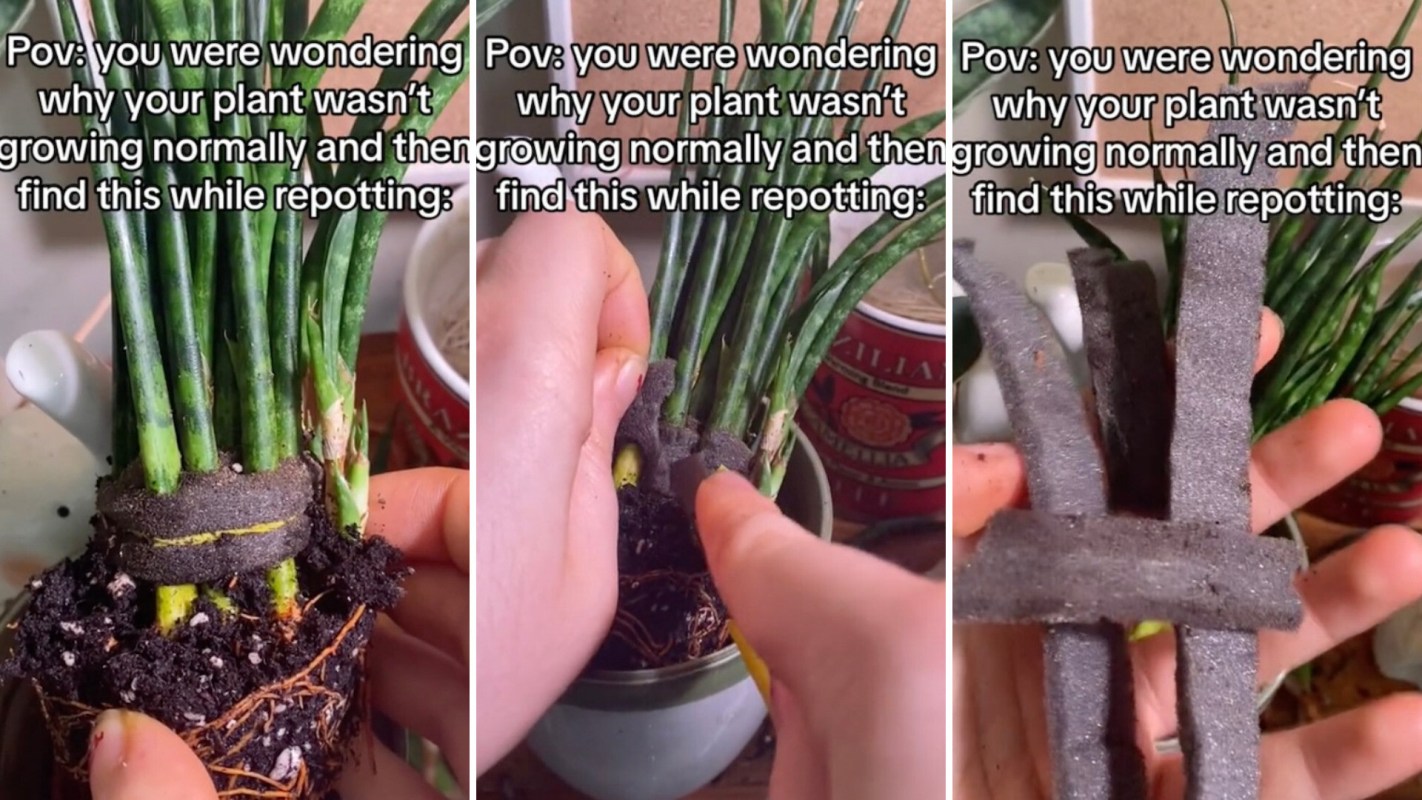If you've ever grown plants, you know how rewarding it feels to see them thrive after putting so much time and effort into their growth.
However, having plants can also be a frustrating experience when they don't grow properly, especially when it's because of unnecessary packaging that you didn't notice until much later.
TikToker Clémence (@clemence.plants) stumbled upon a disturbing discovery that was restricting the growth and likely contaminating the soil of their new plant.
@clemence.plants It was taking more space than the soil 😭 #plantsoftiktok #planttok #planttiktok #autisticplantparent #plants #plant #plantlover #houseplants #houseplant #houseplantsoftiktok #plantparent #botanical #botany #snakeplant #sanseveria ♬ Act 2: In the Hall of the Mountain King - Edvard Grieg
"POV: you were wondering why your plant wasn't growing normally and then find this while repotting," reads text superimposed on the video.
In the clip, the creator shows a plant that someone in the comments identified as baby cylindrica with foam wrapped around its base. Using a boxcutter to cut the foam, the creator freed the plant from the suffocating material and showed it to viewers, sharing that it took up more space than the soil.
Someone commented that the foam helps the plant sit upright but is a "cheap shortcut" since it will grow correctly with proper care anyway. However, if the creator hadn't decided to repot the plant, it might not have been able to survive much longer since the foam was restricting the roots.
Foam, which is made of a plastic material called polyurethane, poses several threats to the environment. For one, it isn't effectively recycled and requires immense amounts of dirty fuel sources like oil and gas to produce.
Studies estimate that polyurethane production generates 8.5 million tons of pollution in the U.S. per year. Since most of it is burned or sent to landfills, foam produces even more pollution at the end of its lifecycle and can contaminate ecosystems.
It can also damage plant root systems and leach microplastics into the soil. If your plants need extra support, The Spruce recommends using natural materials like moss poles or wooden stakes.
This isn't the first time stores have been caught selling harmful products. Shoppers have recently warned gardeners about big box chains carrying English ivy and other problematic invasive plants.
However, continuing to spread awareness about eco-friendly practices and holding corporations accountable can bring about positive changes for both humans and the planet.
"This is why I repot all plants as soon as I get them," one user commented.
"Got a plant once that had an additional tiny pot restricting the roots inside of the regular pot," another shared.
Someone else summed it up perfectly, writing, "What is this monstrosity omg, poor plant."
Join our free newsletter for easy tips to save more, waste less, and help yourself while helping the planet.









